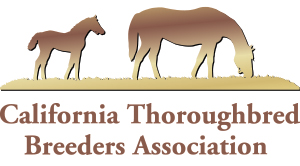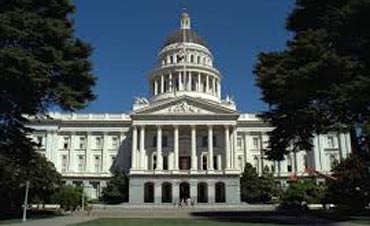By Dave Palermo, GamblingCompliance
SACRAMENTO, Calif. (Aug. 7, 2014) — Legislation to legalize Internet poker in California, potentially the most lucrative U.S. online gambling market, will not make it out of the state legislature in 2014, Capitol Hill officials, American Indian tribes and racing industry lobbyists said Wednesday.
A bill sponsored by Senator Lou Correa will not be the subject of a hearing by the Senate Government Organization Commission (GOC) before an August 29 deadline for consideration by the full legislature, according to GOC director Arthur Terzakis.
“There will be no Internet poker hearings in August, no,” Terzakis said.
Similar legislation sponsored by Assemblyman Reginald Jones-Sawyer remains stagnant, a victim of legislative inertia and strained relations between Jones-Sawyer and the tribes who drafted his bill.
An informational hearing on Internet legislation has not been scheduled for the Assembly GOC, a committee spokeswoman said Wednesday. Jones-Sawyer’s staff did not respond to requests for comment.
Policy issues involving “bad actor” provisions and the state’s thoroughbred racing industry, coupled with regulatory and legal issues, have made it impossible at the 11th hour to come up with a draft bill, state, tribal and racing industry officials said.
“There are a number of outstanding issues dealing with language, how we are going to fund enforcement … multiple facets of the bill that are not going to get resolved in three weeks,” said councilman Steve Stallings of the Rincon Band of Lusieño Indians, one of a 13-tribe coalition seeking Internet legislation.
“There’s just not enough time to get it all done.”
“Instilling public confidence in the integrity of state-sanctioned Internet poker is a fundamental principle of ours,” said a statement from 12 of the 13 tribes.
“To that end and in consultation with the bill authors, our tribal leaders have concluded that rushing a bill in the closing days of this legislative session will not allow for the level of careful public examination and confidence an issue of this magnitude requires.
“We look forward to continuing the work with legislators, regulators, and stakeholders on a bill that can be brought before the legislature in 2015.”
“The intrastate Internet poker legislation is a complicated measure that could impact state gaming policy for many years to come,” said a statement from the San Manuel Band of Serrano Mission Indians.
“Because of these considerations, San Manuel believes it is best to continue working on these efforts and prepare for 2015 with the goal of making California the best-in-class for regulated I-poker.”
A lack of legislative hearings on the issue in the Assembly GOC makes it highly unlikely that Jones-Sawyer, sponsor of an Internet poker bill largely drafted by the Pechanga Band of Luiseño Indians, will get his bill approved by both houses of the California legislature.
“He’s made a lot less progress in terms of perfecting the language, getting feedback from departments in the government,” Stallings said.
“Senator Correa is the lead on this thing and the legislative history is on the Senate side.”
Correa, who is termed out, has called for forming a work group of tribes, card clubs, racing officials and regulators to consider policy issues and a regulatory framework for consideration when the legislature reconvenes in December.
“He has four years invested in this and he would like to continue working with folks to see if he can put together a proposal that might be workable,” Terzakis said.
Involvement by the state’s racing industry is major roadblock to legislation. Many legislators say they will not consider a bill that does not include the racing industry and its unions.
Some politically influential tribes — notably the Pechanga Band of Lusieño Indians, Agua Caliente Band of Cahuilla Indians and Barona Band of Mission Indians — are opposed to allowing tracks to operate poker websites, claiming it would erode tribal casino exclusivity and violate public policy of limited gambling. Others tribes are not opposed to licensing the tracks.
Governor Jerry Brown said concessions need to be made to the racing industry, either through license eligibility or a revenue stream, an option the industry so far rejects.
“It’s a good, old-fashioned standoff,” Robyn Black of Platinum Advisors, lobbyist for the thoroughbred racing industry, said of the split with tribal governments.
“I think it’s regrettable, especially considering all the work Senator Correa put into this effort, that we couldn’t move it forward,” Black said of poker legislation.
“But horses have to be included in the bill. We’re just as entitled to this new form of gaming as anybody else.”
“It’s an issue that’s still yet to be resolved,” Stallings said.
“Both the tribes and the tracks realize rather than having lobbyists and lawyers talking, tracks and tribal leadership needs to sit down around the table. I understand there’ll be some movement to do that.”
There also remains debate over “bad actor” segments of draft legislation intended to preclude the licensing of international online giant PokerStars, recently purchased by Amaya Gaming.
Most tribes have fine-tuned the legislative language to include “tainted assets.”
But the Morongo Band of Mission Indians and three politically powerful Los Angeles-area card rooms in partnership with Amaya/PokerStars pledge to oppose legislation with bad actor provisions.
The gambling enforcement bureau of the Department of Justice (DOJ) also suggested last-minute amendments regarding background investigations and the funding of additional staffing and resources.
Tribes and Nevada casino companies have been seeking licensing suitability reciprocity for tribes and vendor companies licensed in other jurisdictions. The DOJ believes legislation should provide equal footing for card rooms.
Meanwhile, card rooms have submitted amendments which, among other issues, deal with licensing and succession of ownership.
“There were some regulatory issues, legal issues, technical issues, policy issues, you combine all that and it’s going to take some sitting down at the table and hammering out a deal,” Terzakis said.
Most tribal officials concede the logistics of getting bill language out of Legislative Counsel that satisfied the concerns of legislators, tribes, card rooms and the racing industry was too difficult.
“There were a lot of technical aspects of the bill that needed to be resolved,” Black said. “I give Senator Correa credit. He didn’t want to get a bill just to do a bill. He wanted to get it right.
“I would hope we can all get together and get it done right,” Black said of Correa’s proposal for an Internet poker work group. “Protect the consumer. Generate revenue for the taxpayers. Let everyone grow their business.
“That’s what the American dream is all about, isn’t it?”


